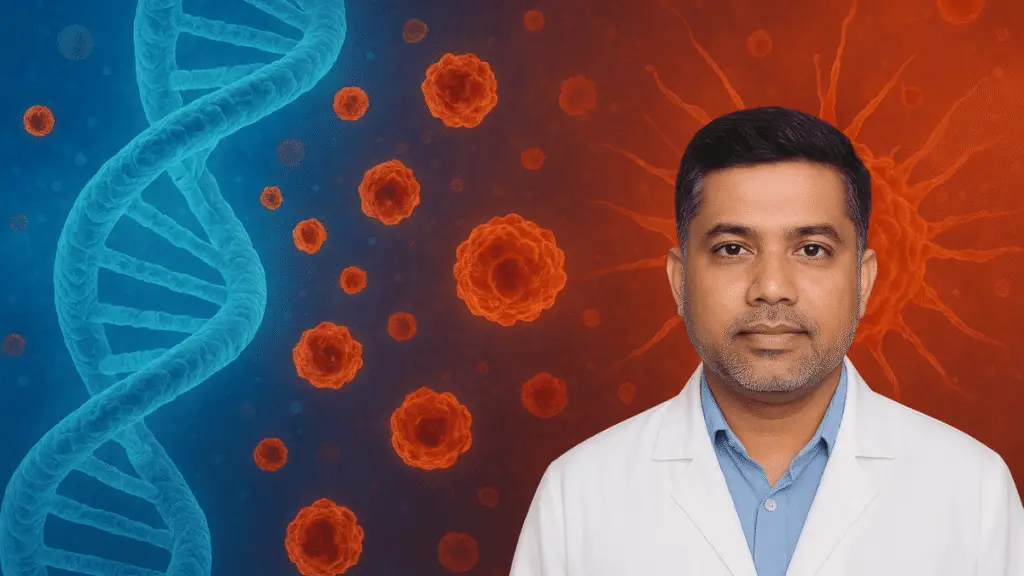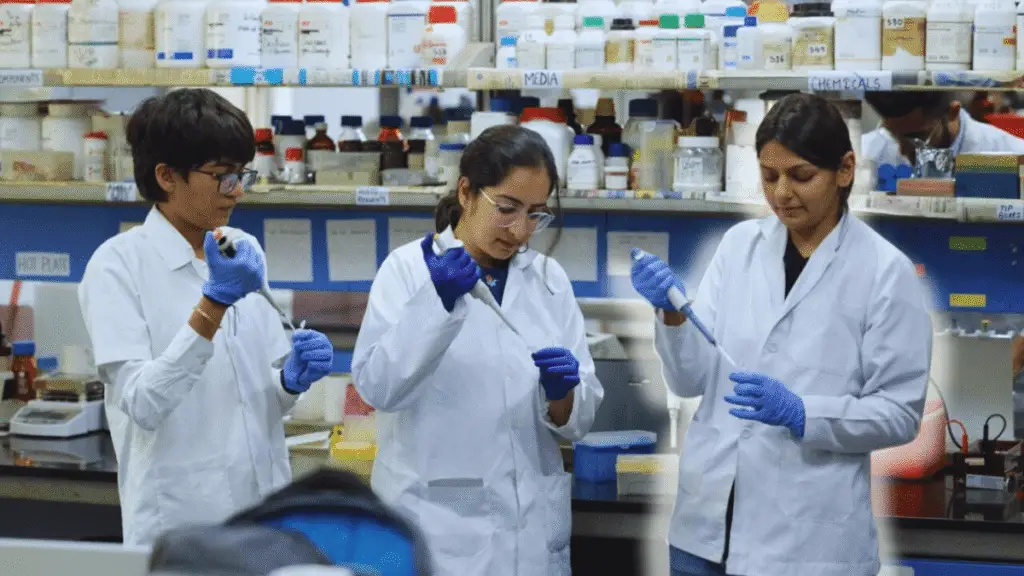Cancer remains one of the biggest challenges for the scientific community. Among many different cancers, colorectal cancer (CRC) is the third most commonly diagnosed cancer worldwide, with a very significant mortality rate.
The CRC is complex and thus, the treatment is challenging.
The scientific community is therefore now racing towards personalised cancer therapies. And our Indian scientists are making remarkable progress. One such scientist is Dr Karthik Vasudevan.
He used AI and machine learning to make the CRC treatment better and more targeted. This is his story.
Key Topics:
Meet the scientist:
Dr Karthick Vasudevan is currently a faculty scientist at the Institute of Bioinformatics, Bengaluru. He pursued his PhD from the VIT, Vellore, India and published 86 peer-reviewed articles in national and international journals (as per the data available on the Institute of Bioinformatics).
His major areas of specialisation are in bioinformatics, followed by antimicrobial resistance, computational biology, microbial genetics, AI and machine learning and next-generation sequencing.
His current work focuses on the interconnection of AI, genomics, and cancer immunotherapy. In which he revealed potential targets for CRC therapy.

His recent research:
Colorectal cancer, affecting the colon or rectum, is among the world’s most dangerous cancers. Its deadliness comes from late detection, as early stages lack clear symptoms, allowing it to progress quietly.
Treatment is complex because each patient’s tumour behaves, mutates, and responds differently, making personalised therapy challenging.
This cancer often goes undetected until the later stages and does not respond to therapies. Dr Karthick and his team, in their latest work, tackled this challenge differently.
Routine therapies target cancer cells directly; here, instead, Dr Karthick and team postulated a unique strategy to target the cancer cells using the neoantigen-based personalized cancer vaccines.
They used combined approaches using AI, genomics, and immune profiling to reach the goal and to understand what makes each patient’s tumour unique.
The findings of his latest research:
The research mostly focused on identifying neoantigens, which are mutated protein parts present only on cancer cells in colorectal cancer patients.
The team used advanced bioinformatics tools to analyse patient tumour DNA, gene mutations, and immune response patterns. What they discovered is quite remarkable and can be a breakthrough in the treatment of colorectal cancer.
They discovered a specific neoantigen that can trigger strong T cell activation. They have identified three promising neoantigens (TTK, EZH2, and KIF4A) and the top 5 immune hub genes (IGLV7-43, IGKV2D-28, IGLV2-8, IGHV3-35, and IGHV3-7) as potential immunotherapy vaccine targets.
How his research will benefit society:
With this research, Dr Karthick and his team successfully identified the neoantigen targets, predicted targets for personalised cancer vaccines, and developed AI-driven immunotherapy strategies.
Such research helps develop personalised treatment for CRC and other cancer patients, and improves treatment and patient survival rates in the long run. This means every patient can get personalized treatment depending on their tumour type, cancer stage and progression.
Related article: This Indian Scientist Revealed the Impact of Human Activities on Marine Biodiversity Without Touching a Single Fish.
Future aspect:
Dr Karthick’s research is a classic example of using the full potential of AI and machine learning in the biological sciences and research. Such AI-powered research would change the cancer treatment and personalised medicine field in the near future.
In addition, the rapid advancement in genomics will also enable the DNA-based personalised treatments and medicines soon.
Dr Karthick and his team’s work can be a game-changer for cancer patients as it is effective, hopeful, and personalised.
Sources:
Vasudevan, K., T., D., Hebbar, S.R. et al. Multi-omics and AI-driven immune subtyping to optimize neoantigen-based vaccines for colorectal cancer. Sci Rep 15, 19333 (2025). https://doi.org/10.1038/s41598-025-01680-1.


